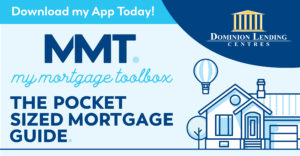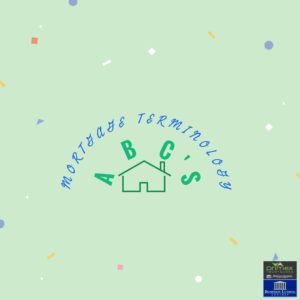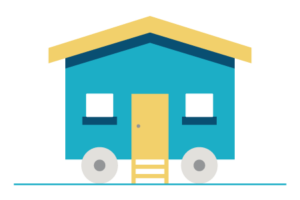We often get caught up using mortgage jargon that is not a part of your everyday vocabulary. Some terms that are commonly used in our industry are listed below.
Amortization Period
This is the number of years it will take to repay the entire mortgage in full. A longer amortization period will result in lower payments but it will take longer to pay off, so the interest is higher. The typical amortization range is 15 to 30 years.
Closed Mortgage
This is any mortgage where you have agreed to pay the lender for a specified period of time. This means that you cannot pay it off, refinance or renegotiate before the mortgage term ends without incurring a penalty. Depending on the lender, there may be options for accelerated payments but it depends on your particular mortgage contract. While these mortgages tend to be a lot stricter, they can often provide lower interest rates.
Conventional Mortgage
The loan covers no more than 80% of the purchase price on the property. This means the buyer has to put 20% (or more) down on the property. These mortgages do not require default insurance due to the amount down.
Default
Failure to pay your mortgage on time will result in defaulting on the loan.
Derogs
Short for ‘derogatory’, it refers to an overdue account or late payments on your credit report.
Down
Short for down payment. In Canada, the minimum down payment is 5%.
Fixed
A fixed-rate mortgage means that you are locked in at the interest rate agreed.
Flex Down
This refers to a borrowed down payment program, which allows homeowners to “borrow” money for the down payment from a credit card, line of credit or other loan. In this case, the repayment of the loan is included in the debt calculations.
Foreclosure
This refers to the possession of a mortgaged property by the bank or lender if a borrower fails to keep up their mortgage payments.
High-Ratio Mortgage
A high-ratio mortgage is where the buyer has provided a down payment of less than 20% of the purchase price and needs to pay Canada Mortgage and Housing Corp (CMHC) to insure the mortgage against default.
MIC
Short for Mortgage Investment Corporation, this is a group of investors who will lend you the money for a mortgage if a traditional lender will not due to unusual circumstances.
Open Mortgage
An open mortgage means you can pay out the balance at any time, without incurring a penalty.
PIT
Principal, interest and taxes— a calculation representing the amount you can afford to pay monthly on your home.
Pull
Also known as a ‘credit check’ or ‘credit inquiry’, a ‘credit pull’ refers to the act of checking a credit report to determine if the borrower is a viable investment prior to approval of the mortgage.
Term
Term is the length of time that a mortgage agreement exists between you and the lender. Rates and payments vary with the length of the term. The most common term is a 5-year, but they can be anywhere from 1 to 10 years. Generally, a longer term will come at a higher rate due to the added security.
Trade Lines
This refers to any credit cards, loans, wireless phone accounts, or mortgages that appear on your credit report.
Underwriting
This refers to the process of determining any risks relating to a particular loan and establishing suitable terms and conditions for that loan.
Variable
A variable-rate refers to an interest rate that is adjusted periodically to reflect market conditions.
20/20
A condition that refers to repaying 20% of the mortgage balance OR increasing your payment by 20%, without incurring a penalty.
If you hear any mortgage jargon that you’re unsure of, don’t be afraid to ask questions! At the end of the day, your mortgage contract is unique to you so it’s important that you understand it. Contact us today to discuss your situation and answer any questions you may have. You can call us at 604-552-6190, email us at support@primexmarketing.com or fill out this form.







